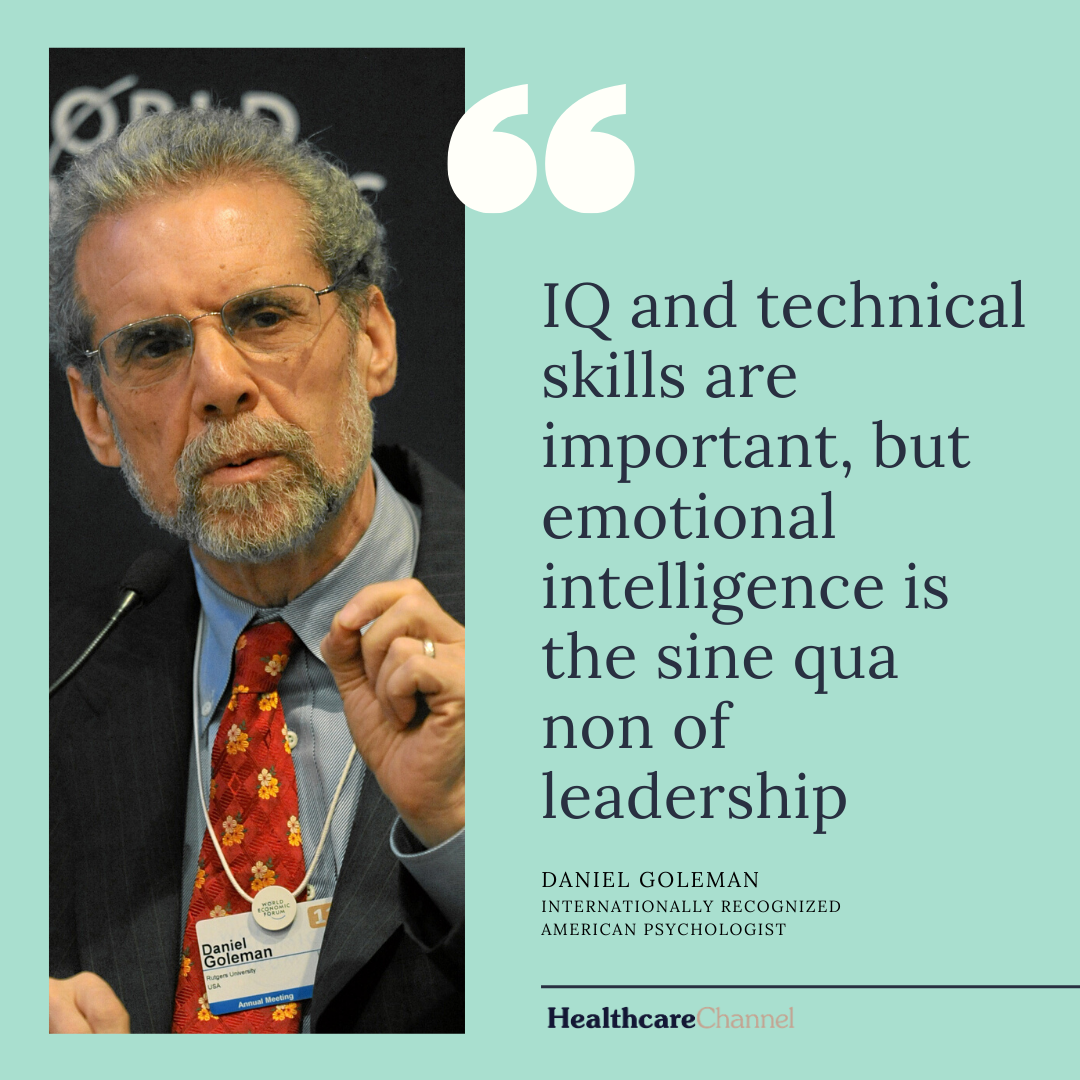5 Essential Skills to be an Excellent Leader in Healthcare
Share
When we ask ourselves what an honest leader is, most people will immediately consider someone with highly intellectual capacities, technically proficient, and somewhat charismatic. In his research, American psychologist and Professor, Daniel Goleman, discovered that although a high IQ and technical capabilities do matter, these are far away from being sufficient. After effecting his study in nearly 200 large companies, he discovered that what really counts is emotional intelligence. Goleman reveals his thought within the article published within the Harvard Business Review, “What makes a leader?”
IQ and technical skills are important, but emotional intelligence is the sine qua non of leadership
The term ‘emotional intelligence’ was first popularized by Daniel Goleman’s best-selling book published in 1995. But it had been only in 1998 that the psychologist applied this conceptual phrase to business within the HBR review. whether or not the notion seemed related to a “soft skills” category, Goleman established a right away link between measurable business skills and emotional intelligence. in step with his research, the foremost competent leaders all present a high degree of emotional intelligence. But what exactly comprises emotional intelligence? It basically includes the subsequent five components: self-awareness, self-regulation, motivation, empathy, and at last, social skills. a short presentation on all of these.
- Self-awareness is also summed in Socrates’ precept, “nosce te ipsum” meaning know thyself. Having self-awareness means to grasp one’s feelings, emotions, and effects upon others.
- Self-regulation. per Goleman, this component is that the one that, “frees us from being prisoners of our feelings.” It represents our ability to handle and control impulses and moods.
- Motivation. Motivation, during this case, is tied with achievement instead of driven by external rewards like money or status.
- Empathy. a frontrunner stuffed with empathy doesn’t mean to please each of the company’s employees, but only signifies that she/he will carefully take into consideration the employees’ feelings so as to create any decision.
- Social skill. the flexibility to ascertain and maintain healthy relationships, and build functional networks.
For those that read these lines thinking they’re lacking a number of the attributes described above, there’s no must worry. Emotional intelligence is often learned. As genetics along with nurture does play an intertwined role, it remains possible to amass emotional intelligence. First of all, time helps. People gain emotional intelligence with age. Yet, even with maturity, and for those during a hurry, only true persistence and desire combined with effective efforts can truly enhance emotional intelligence. Daniel Goleman further underscored that an individual may be incredibly intelligent, showing high-proficiency in analytic reasoning and holding impressive technical skills, but that without emotional intelligence, he or she is going to never be a good leader.
 For the record, Daniel is an internationally recognized American psychologist. ‘Emotional Intelligence’ was printed in 40 different languages. It also has been recognized joined of the 25 “most influential business management books” by Time Magazine. Goleman also worked as a science journalist for The New-York Times where he reported on psychology and brain sciences.
For the record, Daniel is an internationally recognized American psychologist. ‘Emotional Intelligence’ was printed in 40 different languages. It also has been recognized joined of the 25 “most influential business management books” by Time Magazine. Goleman also worked as a science journalist for The New-York Times where he reported on psychology and brain sciences.
A version of this story was originally published on https://www.leadersleague.com/en/news/what-makes-a-great-leader-daniel-goleman-answers-truly-effective-leaders-are-distinguished-by-a-high-degree-of-emotional-intelli












